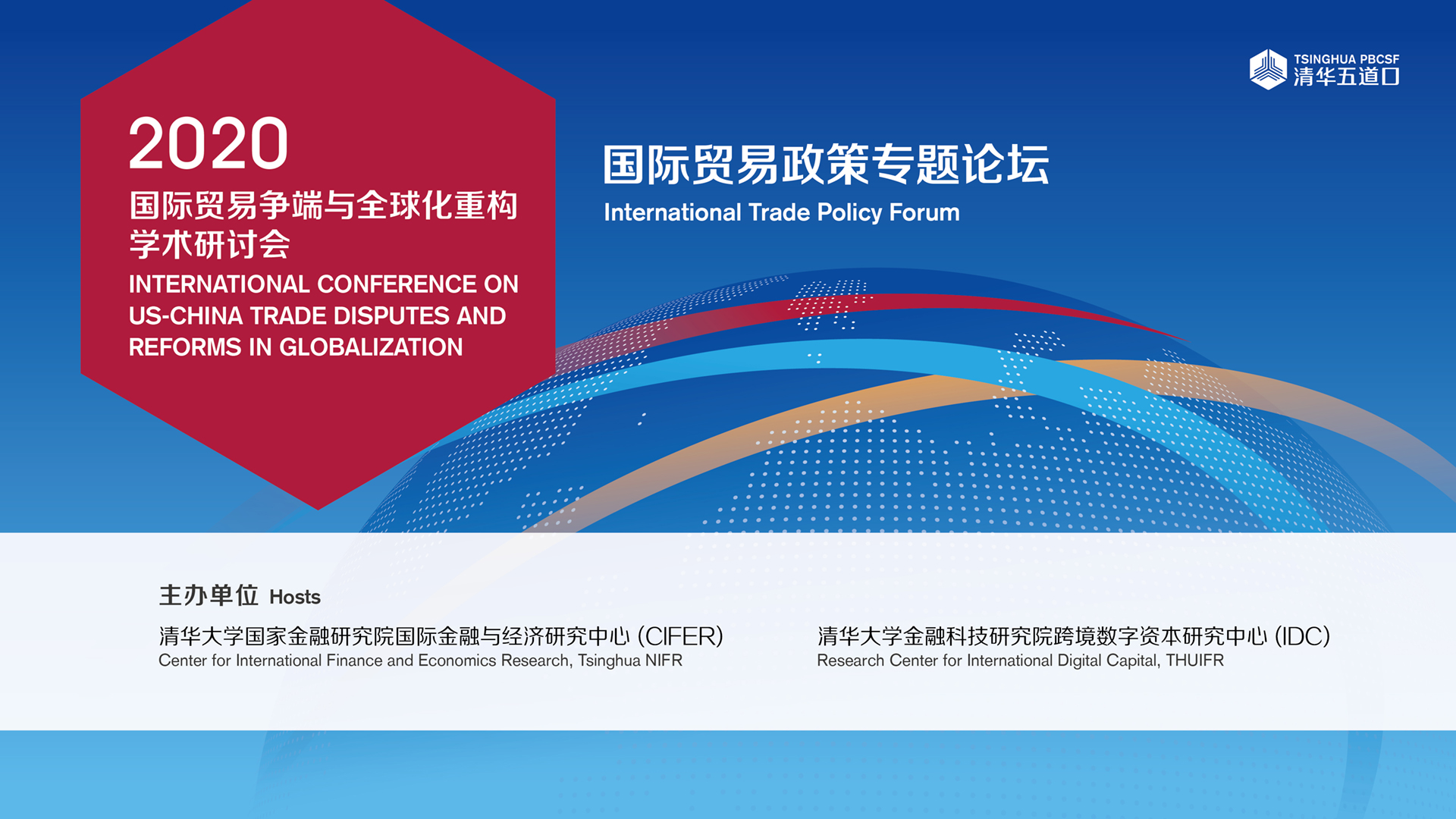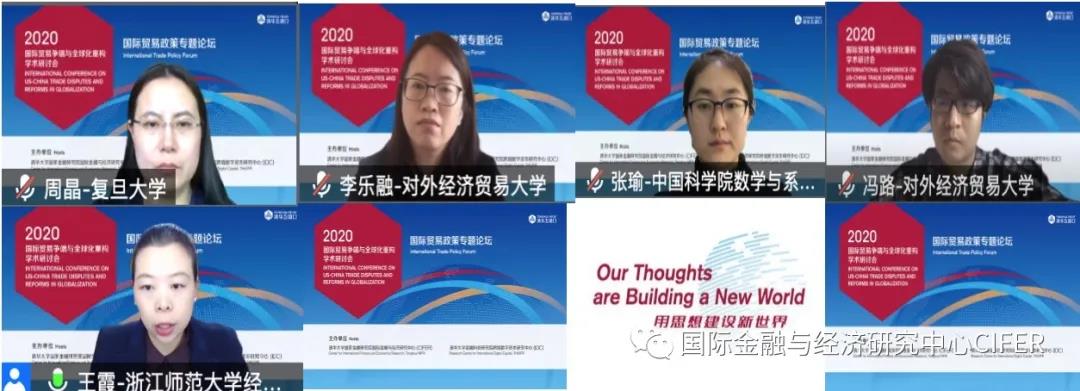 近日,由清华大学国家金融研究院国际金融与经济研究中心(CIFER)与清华大学金融科技研究院跨境数字资本研究中心(IDC)联合举办的2020国际贸易争端与全球化重构学术研讨会(2020 International Conference on US-China Trade Disputes and Reforms in Globalization)在线上顺利召开。对外经济贸易大学国际经济贸易学院讲师李乐融出席并分享主题为Trade Policy Shocks and Consumer Prices《贸易政策冲击与消费者价格》的文章。
近日,由清华大学国家金融研究院国际金融与经济研究中心(CIFER)与清华大学金融科技研究院跨境数字资本研究中心(IDC)联合举办的2020国际贸易争端与全球化重构学术研讨会(2020 International Conference on US-China Trade Disputes and Reforms in Globalization)在线上顺利召开。对外经济贸易大学国际经济贸易学院讲师李乐融出席并分享主题为Trade Policy Shocks and Consumer Prices《贸易政策冲击与消费者价格》的文章。
李乐融,对外经济贸易大学国际经济贸易学院讲师。于2020年获得马里兰大学经济学博士学位,2014年获得北京大学国家发展研究院经济学硕士学位,2010年获得浙江大学管理学院学士学位。研究领域是国际贸易,贸易政策。研究兴趣包括贸易政策不确定性,区域贸易协定,跨国投资等。

李乐融
分享文章摘要
How does trade policy shock affect consumer prices? By constructing a novel data set with both US import prices and barcode-level consumer prices, I examine the pass-through of import prices into consumer prices and its heterogeneity across consumers. I find that the pass-through of import prices to consumer prices is incomplete: a 1% increase in import prices leads to a 0.3 to 0.4% increase in consumer prices. Moreover, the pass-through is heterogeneous: it is higher for consumers with lower income and in market swith higher retail industry competition. To explain these findings, I build on Burstein and Gopinath (2014) to model a retail margin with variable markups and extend it to allow for consumer price heterogeneity. I show that the differential pass-through rates across consumers are largely driven by the differences in expenditure shares across varieties with heterogeneous pass-through rates. In addition to price changes of continuing varieties, the exit of imported varieties reduces the number of varieties in consumption basket and causes an increase in the exact consumer price index. Lastly, I conduct aquantitative exercise to estimate the increase in consumer prices if the U.S imposes a 25% tariff on all consumer goods from China. The tariffs would affect approximately 20% of import expenditures and cause the consumer prices of affected goods to increase 1-2% on average. The increases in consumer prices are almost 50% higher for lower income consumers and higher for consumers living in big cities of the Northeast region and West Coast.

周晶
复旦大学经济学院助理教授周晶认为本文是一篇非常好的实证研究文章,读起来很享受,并对文章进行了简要的总结:主要研究进口价格是否会传导到消费者面前。接下来周老师针对文章提出了几点建议:一、本文对“trade policy”和“trade policy uncertainty”的界定不是很准确,缺少一些详细的解释:文章研究到底是基于贸易政策还是贸易政策不确定。二、文章没有解释是否具有一般均衡效应,例如:对美国同一个消费者来说,来自中国的产品价格提高,消费者会选择替代产品吗?三、实证研究:假设不受影响国家的进口价格不变。

国际贸易政策专题论坛与会嘉宾学者
CIFER公众号将在会后持续详尽推送各演讲嘉宾的个人学术观点与成果分享,敬请关注。
